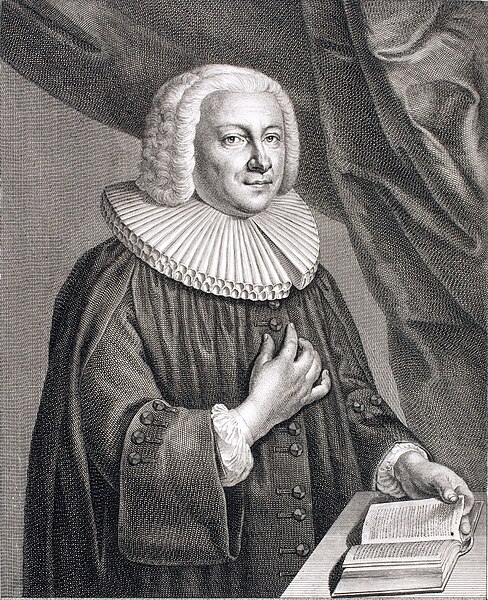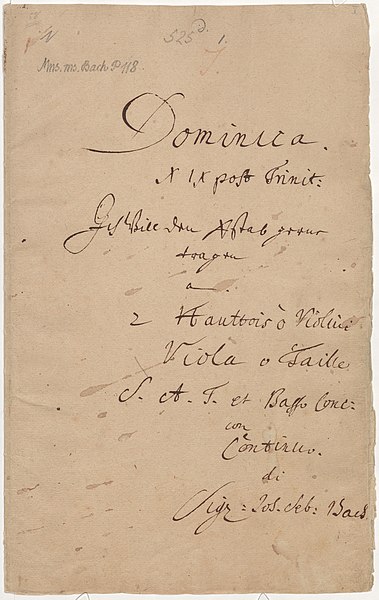Ich will den Kreuzstab gerne tragen, BWV 56
Ich will den Kreuzstab gerne tragen, BWV 56, is a church cantata composed by Johann Sebastian Bach for the 19th Sunday after Trinity. It was first performed in Leipzig on 27 October 1726. The composition is a solo cantata because, apart from the closing chorale, it requires only a single vocal soloist. The autograph score is one of a few cases where Bach referred to one of his compositions as a cantata. In English, the work is commonly referred to as the Kreuzstab cantata. Bach composed the cantata in his fourth year as Thomaskantor; it is regarded as part of his third cantata cycle.
Autograph manuscript of opening bass aria from BWV 56
Cross staff
Christoph Birkmann, the cantata's librettist
Autograph manuscript of the title page, using χ instead of "Kreuz"
Church cantatas of Bach's third to fifth year in Leipzig
On Trinity Sunday 27 May 1725 Johann Sebastian Bach had presented the last cantata of his second cantata cycle, the cycle which coincided with his second year in Leipzig. As director musices of the principal churches in Leipzig he presented a variety of cantatas over the next three years. New cantatas for occasions of the liturgical year composed in this period, except for a few in the chorale cantata format, are known as Bach's third cantata cycle. His next cycle of church cantatas, the Picander cycle, did not start before St. John's Day 24 June 1728.
Bach's autograph of the start (sinfonia) of Brich dem Hungrigen dein Brot, BWV 39, the cantata for the first Sunday after Trinity in 1726, which is the first cantata of his fourth year in Leipzig, composed halfway through his third cycle
Johann Sebastian Bach
Johannes Agricola
Erdmann Neumeister








